- Home
- Wilson Harris
Black Marsden Page 9
Black Marsden Read online
Page 9
It was this infinite movement within and beyond an almost overwhelming fascination with stasis—this subconscious parallel between his present frame on the road to Namless and that order of things at the bottom of the lake—which made the terrible charm of internalized or externalized assassin a bearable theme….
“My god,” said Goodrich almost without thinking now—jolted out of his thoughts—“I have seen him again…. Stop. Stop.”
Knife drew up at the side of the road.
“There’s someone or something,” said Goodrich, “lying there—who resembles yesterday’s creature—I saw him there—in the bushes.”
They made their way back for a yard or two. There it was. There he was—a sprawling figure ten feet or so from the edge of the road. His feet stuck out from a straggle of bushes which lay across his body: his head was obscured by the shadow of a rock. As they came closer Knife exclaimed with dead pan factuality:
“He’s been brutally disfigured.” He stopped. Goodrich was behind but all at once he, too, could see for himself the man’s beard black-looking and rotten-looking with dust and sand where the body had been pulled along the ground. The eyes in that dragged, bearded face still seemed to see, curiously sardonic and without illusion in death.
“I guess someone hit him before he could blink,” said Knife. But his words were hollow as a shell of water playing over a duck’s back and piping—as though quills whistled in the man’s beard—a warning tune. “Hit him,” said Knife (echoing bluntly the dead man’s complaint), “with a heavy stone or a piece of iron or something.”
Goodrich was unable to say a word. He felt a resistance in his throat as the dead man’s eyes resisted sight and Knife’s sharp documentary edge to events grew intuitively blunt. He was suffocated by something Marsdenish (the shadow of Marsden stretching into the past and into the future of Namless Theatre)—a sense of the familiarity and unfamiliarity of the murdered man: a sense of shared existences masked by the frame of death which dared even then to turn the ultimate riddle of life into a self-mocking duel between a phenomenon of personality and degrees of feeling and non-feeling temperament as the chill of being four or five hours dead settled upon the thing on the ground.
“I fear …” said Knife and stopped. And Goodrich was startled by the flicker upon those sharp features. Startled, too, by the cracking and lifting of the constraint which had lain between them since their Dark Rumour conversation earlier in the day. Indeed if it were not for the partial blunting of sheer rumour—and the growth of a peculiar insight into the hollow naturalism of an age which they instinctively shared—he would have been unable to bear or support the savage hollowness of Namless he had begun to glimpse behind Knife’s face. The dead pan public to which he belonged—the dead pan loss of all freedom of opinion or choice—the waiting game at the soul of every instrument, instrumental man, instrumental woman—seemed to flicker in that public hollow: public servant of a regime, hollow desire to overthrow that regime, public alliance with an establishment, hollow desire to act against that very establishment.
“Whom or what do you fear?” asked Goodrich at last.
“I fear,” said Knife as in a dead pan dream, “that the weapons I carry in my hand may come to mean just this.” He stabbed the dead man’s head with his foot. “A blunt instrument between the eyes, a sudden blow, the sudden extinction of everything. It must have been very sudden for him. What was he doing or thinking I wonder when they seized him?” It was an odd reflective question Goodrich thought to come from Knife. “He was an intelligence agent. I know that much. Would you believe it? On the Director-General’s staff. Like myself. We have often, on certain missions in Namless Town, shared the same rooms. Also …”—his voice fell to a whisper—“he was a member of a secret orchestra or revolutionary avant-garde. Perhaps he double-crossed them.”
“I.Q. of the double-cross, left, right, left, right,” said Goodrich and felt instantly ashamed for stabbing, in his turn, the intelligence agent from an avant-garde orchestra.
“And you, Mr. Goodrich,” Knife became quite savage, “I take it you know what you have done?”
“Done?” Goodrich was bewildered.
“There’s a rule at sea which holds good for land. When you spot a dead man floating towards your ship you button your lip.”
“I don’t understand.”
“You button your lip or it’s up to you to haul him aboard, stitch him in canvas with a cannon ball at his feet and fire him back into the sea again.”
“What are you driving at?”
“There’s a bucket in the back of my car,” said Knife.
“Bucket?”
“I didn’t bring a fork or a spade. But the bucket’s there. Take that and dig a hole in the sand.” The devil of rumour between them had been blunted but something else—the devil of command—had appeared.
“To hell with you,” said Goodrich all of a sudden. And he felt relieved for bringing it out into the open—a gathering regiment of vessels (intelligences of judgement and fear—pipes, trumpets, bassoons), cracked skull or chest or bucket—the inevitable marches of the robot living into the abstract orchestra of the dead.
“We’ll take turns,” said Knife. “What did you think I meant? Play and play alike the digging of our cradle or our grave is the music of the future.” And he laughed and whistled to cover his surprise that Goodrich had resisted him: the drollest guerrilla theatre of Namless: such inspired drollery that Goodrich now was taken by surprise. And Knife applauded. “Mr. Goodrich, Mr. Goodrich,” he exclaimed, “it’s our second day on the road to Namless. You have done well. When I report your behaviour to the Director-General he will be impressed.”
“Impressed!” said Goodrich glancing at the murdered man.
“Impressed when I tell him, Mr. Goodrich, that you refused to panic. You resisted me—the drill sergeant in me—the commander in me. That’s great.”
“But … but …” said Goodrich.
“No buts, Mr Goodrich. You have passed high noon on the road to Namless with flying colours.”
“Flying colours,” was all Goodrich could mumble with a sense of chill; and he looked at Knife with reluctant admiration—Knife’s colours of despair and broken-headed realism, versatility of tone and action—the droll whistling mask he had flung over the hollow behind his face, over the blunt dead involved in doing his thing, acting his thing upon the world’s stage. It was a political masterpiece—political flag at the heart of savage malaise—a political recovery, nevertheless, tour de force of ebbing and flowing abstractions which dyed the theatre of mankind with the fiercest broken colours and vessels piping in the name of freedom and still unfreedom, freedom from static illusion….
*
They found a loose patch of sand in which they dug a trench and dumped the Director-General’s intelligence agent. Then they drove another mile or so and turned into the ground before a half-wrecked hostel or inn. There was a large wooden vat on the premises which the guerrillas had not gutted—more than half full of water from the last rainy season—and Knife and Goodrich took turns with the bucket to have a bath. Then Goodrich sat upon the steps of the inn and sipped the bitter clarity of Namless beverage.
The second day of his journey to Namless Town would soon be over. A day of such intense reality it seemed a musical dream of metamorphoses and resources woven through cracked stone, through sand, nature’s pipes and organs as well as man-made ruin, instruments of soul.
Goodrich was making notes in his private diary. He noted the enigma of the Director-General: that curious figure with two faces—one apparently on a pillar of establishment, the other roofed by a revolutionary firmament. For it seemed to Goodrich that the duality of the Director-General’s agents was, in some way, a trial or dispersal of ancient fanaticisms and a sacrificial or multiform head of personality. A token, so to speak, of the bizarre liberalism of the ancient Authorities of Namless as they reconsidered the economic and political future of the region (how perhaps to
re-capture it or collaborate with it in an entirely different spirit rather than re-conquer it by force of arms). How to sense its proportions as a theatre of inner trial, inner judgement within which to discern the natures of visibility and invisibility as these compounded the biased slate of freedom: as these compounded therefore both a creation and a caveat.
The assassination of the Director-General’s intelligence agent raised a number of issues that went to the heart of tabula rasa comedy and drama. One could not but note, for example, the curious stress Knife had placed upon a mysterious orchestra of “intelligences”. Had that murdered agent, for example, a conscious mission to rationalize to the people in the Basin of Namless a certain structure of intelligence—to justify to them an ancient biased conception—to give scientific status, as it were, to a hierarchical abstract realm of intelligence? And a subconscious mission to fail in so doing and be brutally done to death?
On its conscious side the mission looked orderly and beautiful enough—in fact ironically consistent with the strategy of a concealed enemy enmeshed in their own revolutionary codes. On its subconscious side it had no alternative but to ripen towards disaster in endorsing biases of ugly superiority and inferiority; in reinforcing brutal memories of past injustices at the hands of the Authorities; in tipping therefore a scale into being which promised to give endless status, in the body politic of an age, to brutal rebellion (as abstract heads or histories in the past gave endless status to besieged opposition).
Thus in surrendering his agent or pawn the Director-General had concurred with the notion of a sinister ratio or abstract double-cross, abstract status of self-execution into infinity. He had, as it were, with eyes wide open played himself apparently into irreversible checkmate, into kicking the bucket, into a whistling desert or sand; and in so doing therefore precipitated a hollow nemesis, a totalitarian nemesis to which Knife responded by playing commander or leader before Goodrich in order, so to speak, to take over where the Director-General’s agent had apparently failed. But Goodrich (as the Director-General may have hoped or intended) had brought Knife to book by resisting him and raising afresh for deeper scrutiny the mystery of “intelligences” internalized and externalized.
There were three positions Goodrich reviewed now upon his private chessboard, sketched now into his private diary. Two were already self-evident, namely, hierarchical abstract intelligence and totalitarian crude nemesis. The third position could well be the most terrifying though holding out a genuine hope of distancing the fascinations of tyranny. For it brought into uncompromising creative play the very essence, the very paradox of endurance: whether one could endure a state of crisis beyond infection by despair.
With the fall of a certain ruling head or pattern of existence one naturally sickened in oneself even when (or precisely because) one entertained a desire within oneself for the essences of change. (That ruling fallen head was quintessential to oneself.) As dead pan Knife, for example, had sickened when he saw the quintessential barbarism, the most common savage denominator of change—abstract hand in broken head on the pavement of Namless or upon one’s doorstep: broken by the regime or broken by those who stood against the regime. And in order to cover that sickening sensation of horror, that common denominator of shared barbarism (as if he had committed the crime himself) he drew over himself an assumption of authority, brilliant tour de force, guerrilla theatre of Namless.
It was as if (Goodrich sketched into his diary) one looked upon a hollow guerrilla stage or extrapolation of intelligences brilliantly constructed to evoke the hypothetical fall of an age and to invite a deeper scrutiny or orchestration of hypothetical resources beyond that fall so that the function of wasted lives (decimated hopes) was transformed into an irreversible warning or motif of capacity to undermine the hubris of every abstract order or monument, abstract monument or revered cradle, abstract monument or superior grave.
He (as private Goodrich in the theatre of the guerrillas, private host in the theatre of mankind) sipped the brilliant-tasting but penetrative holy nausea of Namless sunset sky and earth, Namless beverage. The curiously real or curiously imagined half-burnt, half-sweet perfume associated with childhood, came to him across the strangest chessboard of evening lights he had ever seen. The sky was made of marvellous scarecrow cloth like glass and of sensuous fiery intelligences. Above the Basin of Namless and in the vague direction of the grave they had dug that day, the air seemed part and parcel of an animated spectre or family tree and for some deeply planted irrational reason Goodrich wept. He recalled his mother’s bewilderment when news of the disappearance of Rigby had come. He recalled how day succeeded day as they waited for news. An irrational body possessed him to take her in his arms. It was the trauma of being alive when the head of the family had vanished; and the notion was born that there existed a scout of love from whose effects of grief no one could escape except across a sea of tears….
Knife had now returned from his foraging expedition in the body of the half-wrecked inn and had set up his tripod and pot and lit the evening fire. “No sign of our woman,” he said to Goodrich. “Perhaps she’s in the hills….” He was staring quizzically at the Goodrich diary (the numerous pages and the drawings clasped together) on the steps of the inn….
*
Night was crystal clear, wild and beautiful with stars. They settled down not far from the fire in their blankets. “We are fortunate,” said Knife, “not to be plagued by mosquitoes in this part of Namless. In the rainy season I tell you it’s hell. Can you smell the orchid of Namless? Comes from the hills over there. Lasts for a week or so. And blooms every other year.”
As he spoke a distant piping music rose from across the Basin of Namless. Goodrich felt his hair stand on end at the extraordinary plaintive lament associated with a nameless piper who had played it in order to warn his master of a threatened ambush knowing that with each note his life was growing forfeit. He was prisoner in enemy hands. The piper’s master Coll Ciotach (left-handed Coll) hearing the music in time turned back and saved his life. The Gaelic words associated with the tune were:
Cholla mo run, seachain an Dùn.
Cholla mo ghaol, seachain an Caol;
Tha mise an laimh, tha mise an laimh.
Translated into English this runs:
Coll my dear, avoid the Fort.
Coll my beloved, avoid the Narrows;
I am in their hands, I am in their hands.
Knife pricked up his ears as the strange fire music threaded its way into the stars. Then suddenly there was silence, an abrupt eclipse or silence. The piper had been seized by the enemy, his fingers were severed and he was killed on the spot.
“They won’t trouble us tonight,” Knife said laconically. But Goodrich wondered whether he was dreaming. “What in god’s name do you mean …?”
Knife grinned. “Oh I see. The pipes. It’s astonishing, isn’t it? In this part of the world. It’s an agreed signal from the guerrillas in Namless that we are safe tonight and may take the road tomorrow through the narrow pass in the mountains.”
Goodrich was incredulous. “You are quite wrong. It’s a warning—the Piper’s Warning—it means beware of ambush.”
“It’s of ancient derivation, yes,” said Knife softly. “There has been a long piece on it recently in Dark Rumour. Apparently initiated by Scottish refugees who came to Namless in the eighteenth century to escape Butcher Cumberland. Note, however, Mr. Goodrich,” said Knife almost ingratiatingly, “that the Piper’s Warning has been converted into its opposite role by the present folk in the hills.”
“Opposite role?”
“Yes—the stranger, the new arrival like yourself is being counselled through me your guide and interpreter to pass rather than pull back. When the piper is seized the music stops and the metaphor of a forfeit is implied but in an open-ended sense. The tunnel is clear. The way is open. There is no danger. You have been granted assurances….”
But Goodrich was not convinced. There was something abo
ut Knife he distrusted at this moment. He lay back on the ground and the thought obsessed him like a dream that the music he had heard had come from the stifled lips of Marsden’s dead agent…. In his dream Knife’s role as guide was now finished.
10
I stop writing suddenly and clip the pages together—nearly twenty to thirty pages of notes and sketches I have made since Jennifer disappeared several hours ago around a bend in the Botanical Gardens. My notes are corrections and revisions of an early “diary of Namless” in order to build a new eye of the Scarecrow or stage or theatre of essences occupied by a phenomenon of personality reaching back into the slate of childhood. Upon that slate Clive Goodrich is a given existence and other buried traumatic existences as well wrestling one with the other to express a caveat or unknown factor, an intuitive fire music within the hubris of assured character, assured rites of passage into death or namless town.
My name is Clive Goodrich. Yet a name is but a cloak and sometimes a strange denuded nameless “I” steps forth. A denuded “I” who is absorbed by the mild spirit of an afternoon like this, or the mild ripple of a breath of wind upon the stretch of water near at hand overshadowed by trees. Or the shadow which now grows upon the sun, a mild self-effacing shadow as I rise to my feet and make my way to the gate leading to Inverleith Row.
My shadow joins others in the queue waiting for a bus to take us into or through Goldenacre. I am aware of a thin stooping woman dressed in a light coat and of a burly man, both in their sixties I imagine. I may have taken little notice of them but for the quaint rich lilt of their voices. The burly man says: “How is Willie Macdougall these days, Maisie?”
“Did ye no hear?” The woman sounds surprised. “Willie’s away.”
“Away?”
“Aye. He passed over at three o’clock in the morning in November last year.”

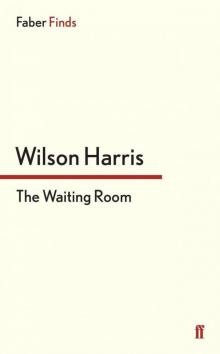 The Waiting Room
The Waiting Room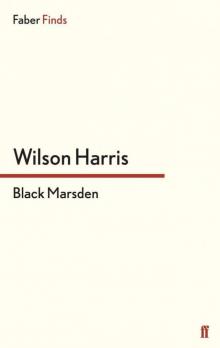 Black Marsden
Black Marsden The Tree of the Sun
The Tree of the Sun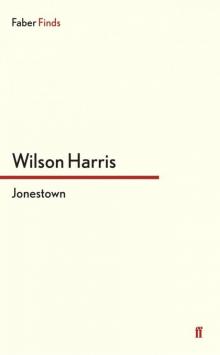 Jonestown
Jonestown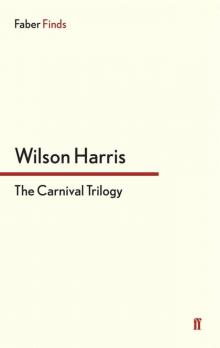 The Carnival Trilogy
The Carnival Trilogy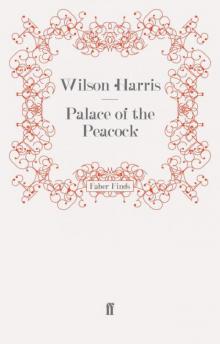 Palace of the Peacock
Palace of the Peacock